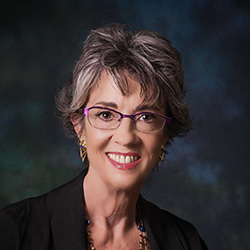By Robyn Stone
Robyn Stone decries the health disparities that challenge older adults with low incomes, but gives thanks for a housing model that can help reduce those disparities.
It’s hard to sit down to a sumptuous Thanksgiving dinner of turkey and all the trimmings without thinking of older adults around this nation who have no such feast to look forward to this year.
I’m particularly concerned about the thousands of older adults living in affordable senior housing who struggle with a variety of disparities every day of the year: health disparities that put them at greater risk for illness and disability; socio-economic disparities that increase the likelihood that income and food insecurity will further threaten their health and independence.
Reducing these disparities has been a big part of our work at the LeadingAge LTSS Center @UMass Boston since 1999, when the late Rob Hilton asked us to help the A.M. McGregor Home “take services to seniors rather than taking seniors to services.” The service-enriched housing initiative we launched with Rob’s help has since become a centerpiece of our research agenda.
Over the past 22 years, we’ve studied models that use affordable housing communities as a platform for delivering services and supports to older residents. We’ve documented and evaluated how housing providers around the country are using these models to reduce health disparities and increase independence among vulnerable residents. We helped guide the development of a service-enriched housing model featuring an onsite team consisting of a service coordinator and a wellness nurse who assesses resident health goals and needs and work with community partners to provide needed services and programs.
We conducted quantitative research studies that documented the association between the availability of onsite services and resident health care utilization and spending. We helped design and implement a service-enriched housing pilot called IWISH that the U.S. Department of Housing and Urban Development (HUD) is implementing in 40 HUD-assisted housing communities around the country. And we developed numerous tools that housing communities can use to implement service-enriched housing models.
We’re nowhere near the finish line, but we’ve made great progress.
So, this Thanksgiving—even as I decry the disparities and grow increasingly impatient for systemic change—I am grateful for the work we’ve been able to do to help at-risk older adults remain healthy and independent for as long as possible, while reducing unnecessary and costly health care utilization.
I’m also grateful for affordable housing providers in the LeadingAge membership who recognized the growing need for services among their residents and reached out to us for help in filling that need.
Finally, I’m grateful for the researchers at LeadingAge who have moved our work forward. And no one deserves more credit for that progress than Alisha Sanders, the LTSS Center’s senior director of housing and services research.
Over the past 16 years, Alisha has been instrumental in educating policymakers and practitioners about the potential of new housing plus services models. She led our team’s efforts to document best practices, guided the IWISH demonstration implementation, and spearheaded our exploration of payment strategies to support these new programs. In the process, Alisha has become one of the nation’s premier experts in affordable service-enriched senior housing, with a focus on bringing housing and health systems together to support successful aging in community for older adults with low incomes.
Next month, Alisha will begin a new adventure in her service-enriched housing journey when she becomes director of program design and evaluation at Volunteers of America (VOA), a LeadingAge member based in Alexandria, VA. Alisha’s new job will allow her to see whether it is possible to implement and sustain service-enriched housing and health care partnerships in a large, multi-state organization.
We will miss Alisha at the LTSS Center, but I’m very grateful that she will remain part of our team through VOA’s membership in LeadingAge and through its continued collaboration with us to develop partnerships between housing and health care systems.
I’m especially grateful that Alisha will continue living out the LTSS Center’s mission to translate research into practice. We’re looking forward to seeing, and benefitting from, the great things she will accomplish at VOA.
In the meantime, the LTSS Center remains more committed than ever to advancing affordable service-enriched senior housing, promoting the importance of expanded service coordination, and working to gain sustainable support for these initiatives. The next chapter of our work will focus on how Medicare and Medicaid can help pay for housing-based teams and other service-enrichment models to support successful aging in community for older adults with low incomes.
As always, we rely on your collaboration in this worthwhile mission. And we look forward to next Thanksgiving—when we expect to express even more gratitude for our continued progress in this critical area of work.

Robyn I. Stone, DrPH, is senior vice president of research at LeadingAge, and co-director of the LeadingAge LTSS Center @UMass Boston. Her widely published work addresses long-term care policy and quality, chronic care for people with disabilities, the aging services workforce, affordable senior housing, and family caregiving.
